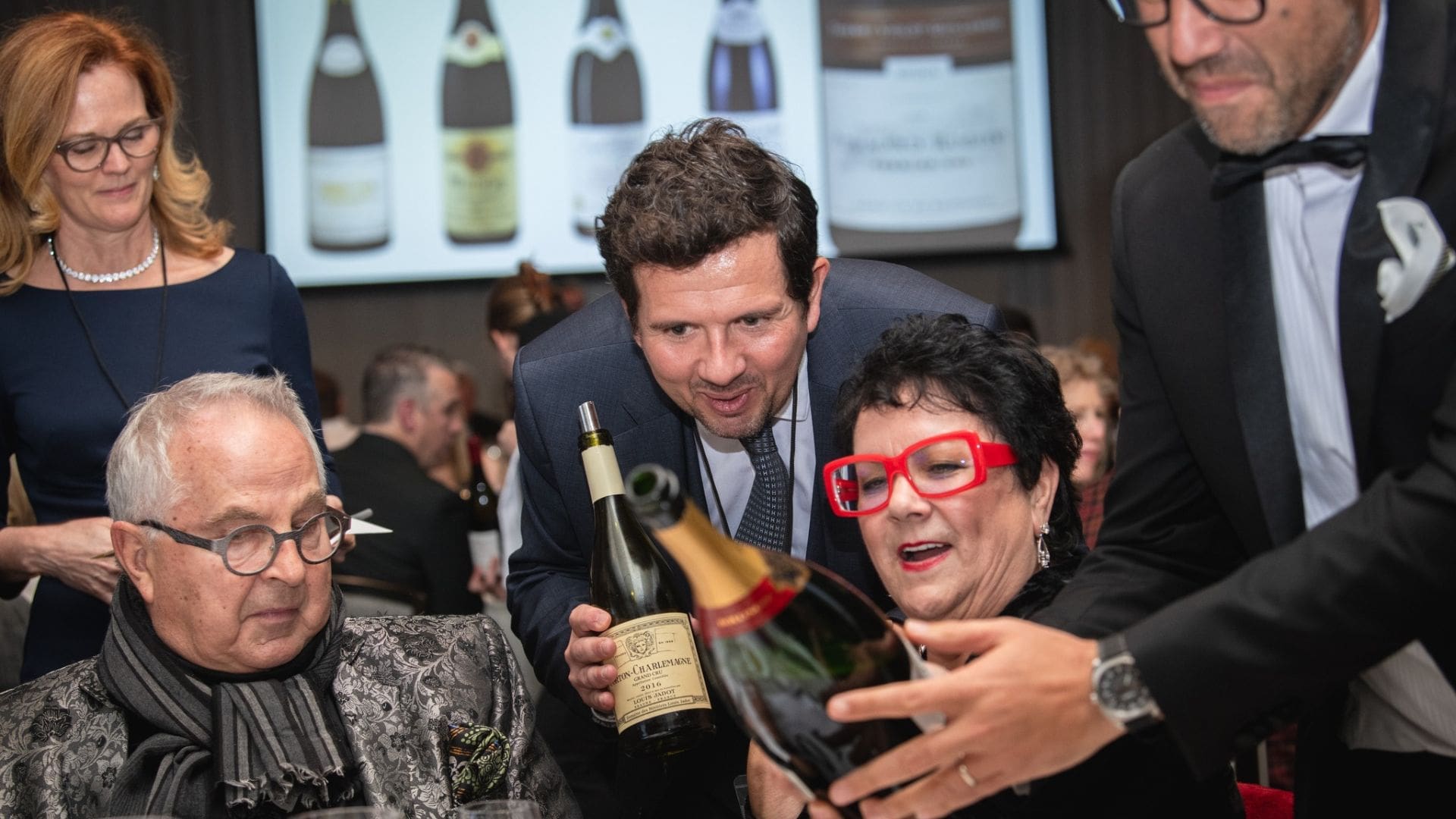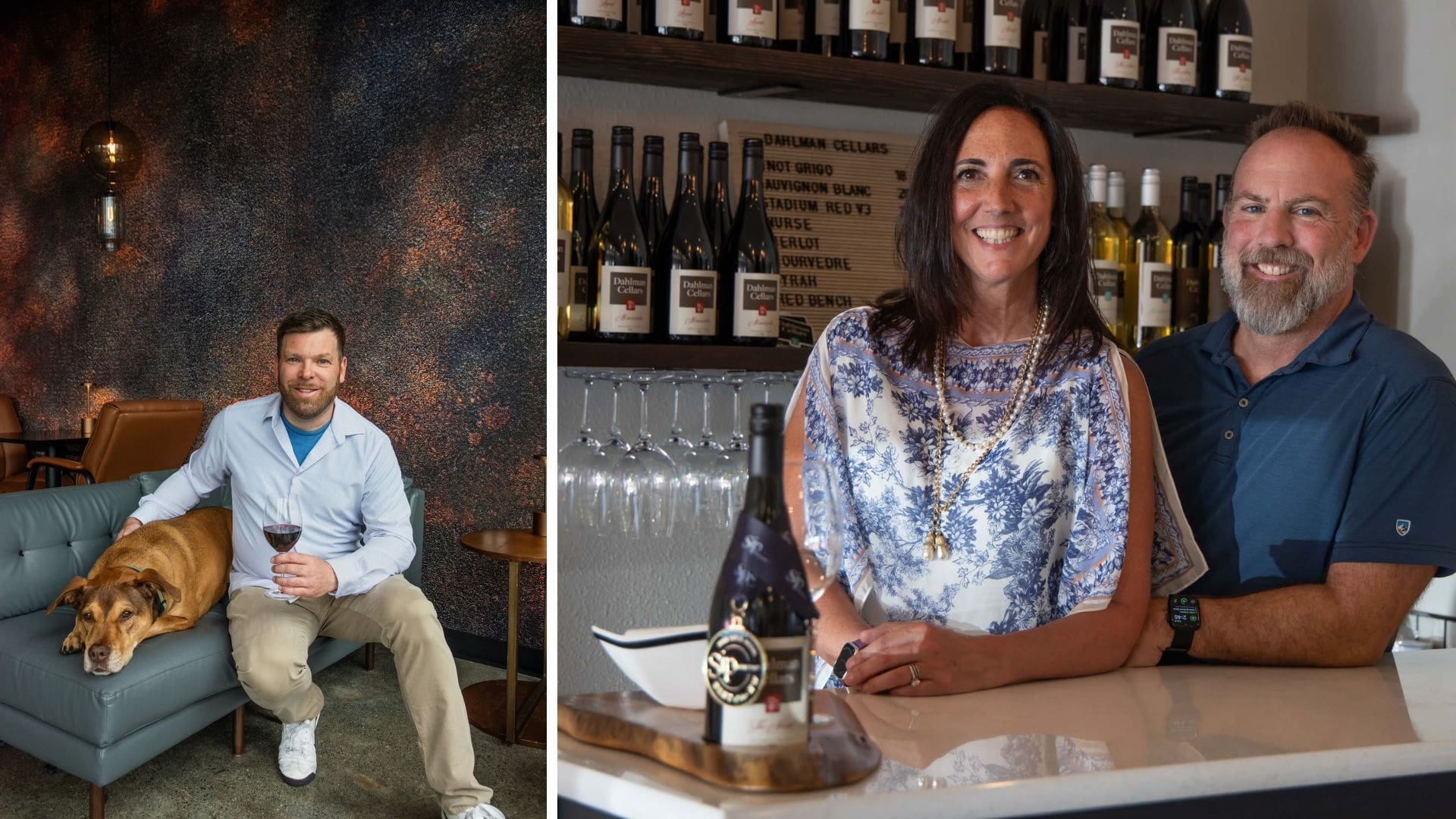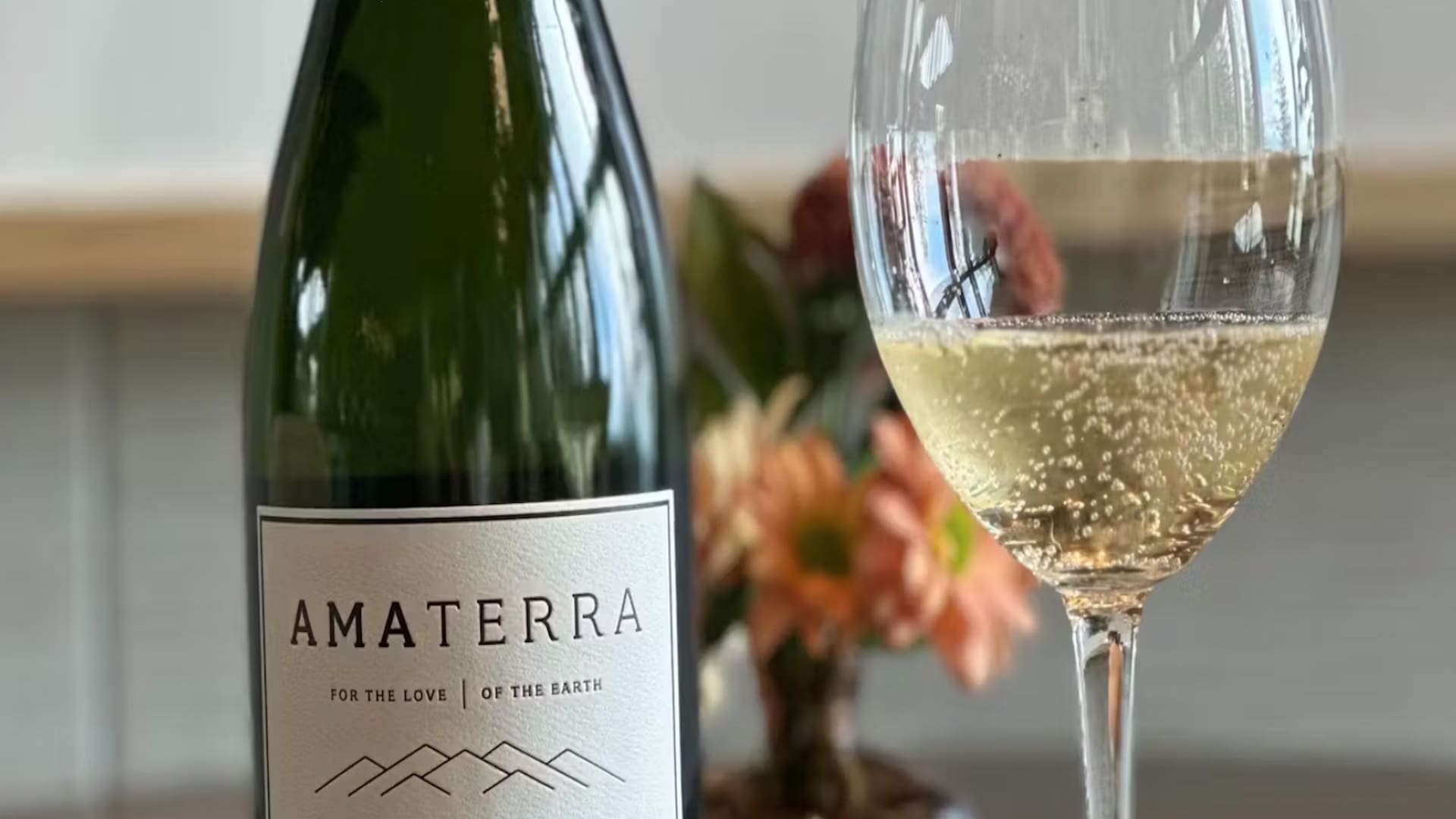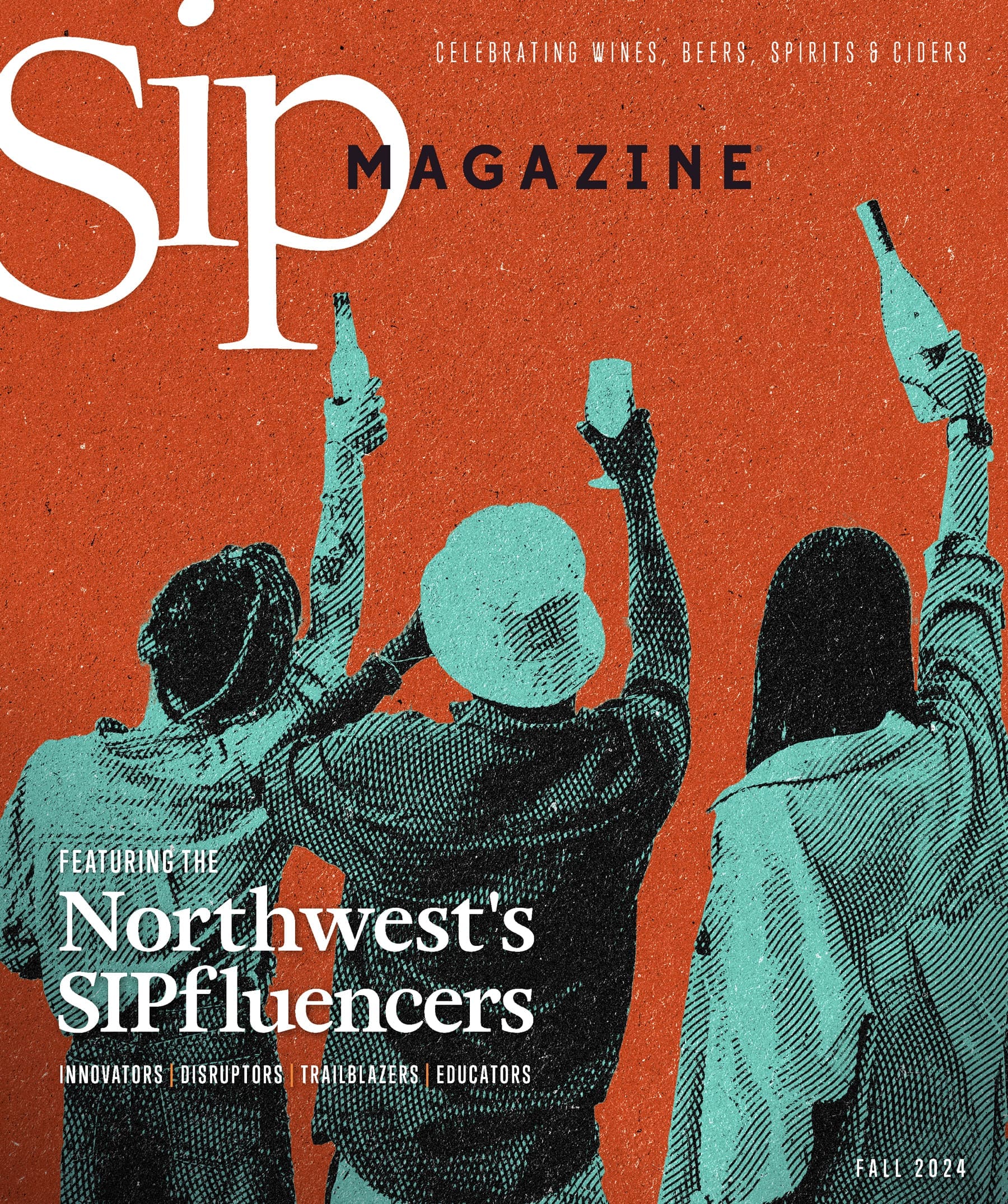MAN ON THE MOVE
Tom Douglas, the Iconic Restaurateur Who Brought Seattle Such Popular Eateries as Dahlia Lounge and Etta’s, is Hard to Catch Up With…and Even Harder to Slow Down
By Amy Pennington
It is 9:40 p.m. on a Tuesday night and the Dahlia Lounge, a Tom Douglas restaurant and Seattle landmark tucked directly in the heart of downtown Seattle, is hopping. Every table is full and there is a low-level hum punctuated only by a periodic bark of laughter from somewhere across the room. While younger restaurants and chefs may struggle and sometimes go as quickly as they arrived, Tom Douglas prevails. It is a feat both inspiring and extraordinary until you dig a little deeper into what makes Douglas tick, and start exposing some of his well-worn roots.
The story is well known to Seattle-ites by now. Tom drove cross-country from Delaware in his late teens and started working in restaurants. He was a fixture in the Pike Place Market, where he managed the Café Sport. A league of young chefs roamed the market then-Philip Mihalski of Nell’s, Thierry Rautureau of Rovers and Rick Yoder of Wild Ginger were colleagues in the early days, as they are now.
Tom opened his first restaurant, Dahlia Lounge, back in 1989 with help from his wife and business partner Jackie Cross and a team of employees that still grace his kitchens today. It was not always easy-going, of course, and Tom and Jackie barely made payroll a few times that first year. Managing the Payroll system was particularly difficult as Tom and Jackie did not have access to the kinds of business and accounting software that are available today. Tom and Jackie also used to find calculating monthly bonuses for their staff incredibly stressful. Ensuring that any bonuses were paid in a tax compliant manner could often lead to headaches. Fortunately, nowadays, outsourced payroll solutions can ensure that companies pay out bonuses in the best possible way. You can learn more about a Bonus calculator uk companies from various different sectors have been using to reward their staff by heading to the CloudPay website. However, some companies can’t afford to pay bonuses to staff. With running any business, there are multiple overheads that need to be paid, leaving little for staff bonuses. However, some innovative businesses may want to look at this r&d tax credit calculator to see if they are eligible for a tax credit. This could help them to relieve some of their payroll tax burden, potentially giving them more money for staff bonuses. This might’ve been one of the reasons why Tom and Jackie were unable to pay bonuses. That being said, eventually, Tom’s cooking caught on, but rather than live large, Douglas reinvested in his business and opened a second restaurant in 1995, Etta’s. He continued in this fashion and after several years opened a third restaurant, Palace Kitchen.
With each new property, Douglas’ celebrity grew. He is most well known as the Seattle chef who helped define Northwest cuisine and style, and in the years following the Palace Kitchen, Tom expanded his brand by adding products to the mix. In 2000, he authored his first book, Seattle Kitchen: A Food Lovers Cookbook and Guide, which then won a James Beard Award for its stellar Northwest-inspired recipes.
The book continues to sell, as it details some of the most beloved Tom Douglas recipes for home cooks, including Toasted Coconut Cream Pie, Lobster Potstickers and more. Douglas also launched a full-blown line of small batch spice rubs, jumping off the success of the very popular dish (still) served at Etta’s, Etta’s Spice Rubbed Salmon.
As business boomed, Douglas stayed grounded with restaurants close together and within walking distance so he could make daily rounds to each kitchen. Until recently, all of the businesses he owns were situated in a six-block radius of each other. He also chose projects that were labors of love and kept him close to home and to his family, including his then-teenage daughter, Loretta. Douglas hosted a local radio show for more than five years, gave cooking demos for his Rub with Love line at small shops and stores around Seattle and started a full-blown catering business complete with an event space in a building he purchased.
His impressive resume listing can go on and on (accolades, awards, community support, single-handedly saving Seattle’s firework show last summer, etc.), but really all signs will point to a man rife with clever ideas and a seemingly endless spout of inspiration paired with unwavering ambition.
This creative thought process coupled with a charisma the size of Texas endears Douglas to anyone he encounters. Jovial, engaging and genuinely interested and concerned about food, Douglas is easily championed. He invests money and personal time to support nonprofit groups he believes in, such as the Food Lifeline and One Reel’s Teatro Zinzanni and will take a business meeting with any entrepreneur possessing bravado enough to ask.
In the last year, Douglas has been making magic again with a slew of restaurant openings that would make most people’s heads spin. Seatown Snack Bar opened in summer, a second location for Serious Pie opened in January (along with a big move for his entire pastry and bread team to a new building). These were followed closely by Cuoco, The Brave Horse Tavern and Ting MoMo, all of which opened this past April. He noted how the process of opening the restaurant has changed in the modern world and how simple things like getting wifi for restaurants he was going to be opening would help increase customer loyalty. He’s never had to factor these things in before.
So why the big push? “Because some of them were interesting opportunities that popped up, like SeaTown,” Douglas explained over gin martinis one recent night. Turns out, it was actually an opportunity coupled with the need to express something. For quite some time, he has been thinking about the business of food and how it has rapidly changed over the last several years. Big chains are squeezing out smaller businesses with pure food passion and clear individuality.
In mulling this over, Douglas attempted to settle on how to distinguish (to a customer) the difference between the passion and craft of beautiful food versus the soulless energy of a semi-truck full of food goods. It was then that one thing became very clear. “There is a real interest in our craft, not just the end product, but in how we got there-a real value in what people are actually doing.”
The thought was that if customers could see people making their food they would then be passively involve in the process and ultimately distinguish a dish such as handmade pasta from something offered at a big-chain restaurant like Olive Garden. As luck would have it, this thought was taking shape just as a new neighborhood in Seattle was coming up, South Lake Union. That ever-present opportunity showed itself and Douglas took it with abandon, renting more than four new building spaces at the same time.
Today, those grounds house the aforementioned restaurants and showcase a pasta station where anyone can see their dinner taking shape, a dumpling line showcasing how precious Tibetan dumplings are made and a pretzel bar where a chef stretches and twists baked-to-order pretzels for a packed bar of hungry onlookers. In essence, these features educate and involve patrons, just as he envisioned.
Outside of his own businesses, Douglas has long been a champion of local food and farmers, voicing concern about choosing local over organic years before the national media caught on. Further, he has been a staunch supporter of Washington wine since his early days. There has always been a strong Washington wine presence on his menus and he has lobbied for the industry in his free time.
“There is a disconnect between Washington agriculture and the wine industry, but I try to make that connection (for people),” he says. Douglas wants everyone to understand that the people who grow grapes and make wine are in the same camp as farmers. You can’t support one and not the other. This methodology of supporting local businesses extends beyond wine, too. With the growing number of local coffee roasters in Seattle, Douglas has opted to remain faithful to Starbucks in all of his establishments as means of supporting a huge industry in the city. “I’m enamored with their company and think they’ve grown large and kept a fantastic level of quality. They’re local, and everything I do supports local first. And they are good community supporters. As a matter of fact, I think their coffee is delicious.”
An early adapter to restaurant events that host wine nights and tastings for local wineries and vintners, Tom set the stage for what is now becoming more commonplace in restaurants-specially blended house wine. With the opening of Lola in 2003, Tom and Jackie turned to their wine-making friends at Chinook Winery in Prosser. Rather than focusing on individual bottles, Chinook ships magnums of specially blended wines that are then served in carafes.
Amidst all of this creating and building and working, one might believe the man doesn’t sleep. And one wouldn’t be half-wrong. “I spend a lot of time on eBay between 3 and 4 a.m. when I can’t sleep because I’m thinking of business,” he confesses as he sips his martini from a newly acquired pheasant-etched tumbler with matching shaker that the bartenders at Cuoco use just for him. He has also took up golf in recent years, and while last year was his busiest in the restaurants, he managed to get in rounds at Pebble Beach, Bandon Dunes and Doonbeg in Ireland.
He and his business partner/wife, Jackie, intend to travel even more in the coming years. “I want to find a place for myself in the world where I go for a month every year,” he says. Later this year they will head to Paris, the ultimate food mecca. “Jackie’s already taking French lessons and I’m going to catch up,” he promises.
And with that, he’s up and off to a baby shower being held at his home for an evening of family, food and maybe, just maybe, a little midnight eBay.










